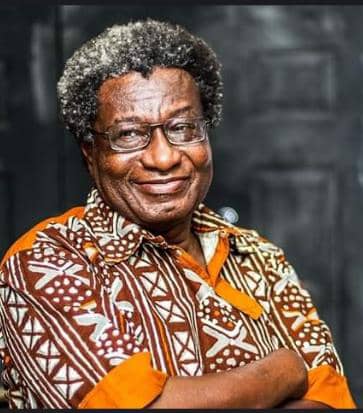By Emman Usman Shehu
Every world, be it born of ink, pixel, or spoken word, is the product of a delicate and powerful alchemy. It is a process that, much like the pursuit of the philosopher’s stone, requires a unique blend of ingredients, a relentless fire, and a patient hand. As the creator of such worlds, I have learned to revere three fundamental elements: experience, observation, and imagination. To overlook any one of them is to risk a world that is thin, brittle, and ultimately unconvincing. They are the alchemical trifecta, the very essence of world-building.
First, there is experience. It is the raw material, the base metal from which all else is refined. This is not just the grand adventures or pivotal life moments, but the minute details of existence. It is the feeling of a cold wind on a mountaintop, the sting of a nettle, the rhythm of a train on a long journey. A writer who has never felt the weight of a heavy pack on their shoulders will struggle to describe a weary adventurer. One who has never tasted a perfectly ripe tomato will fail to capture the simple, earthy pleasure of a peasant’s meal. Experience provides the texture, the weight, the visceral truth of a world. It is the memory of a particular smell that can ground a fictional city, the sensation of a specific fabric that can define a character’s social standing. By drawing on our own lived lives, we imbue our creations with an authenticity that cannot be faked. We become the alchemists of our own memories, transmuting the lead of daily life into the gold of a believable setting.
Next, we add observation. If experience is the personal library of sensations, observation is the endless research into the world around us. This is the act of seeing beyond the obvious. It’s watching how a parent holds a child’s hand in a crowded street, noting the subtle shift in a friend’s expression when they are trying to hide a secret, or studying the way light filters through the canopy of an ancient forest. Observation teaches us the rules of cause and effect, the patterns of human behavior, and the silent language of nature. It allows us to understand why a certain architecture feels oppressive, or why a particular gesture conveys contempt. A world-builder who observes the flight of a bird can create a more compelling dragon. One who watches the dynamics of a small town can build a more believable kingdom. This is where we learn the “how” and the “why” of the world, gathering the principles of physics, psychology, and sociology to apply to our own creations. Observation is the alchemist’s lens, bringing the minute and the macroscopic into sharp focus, revealing the hidden truths that make a world feel real.
Finally, the most volatile and potent ingredient enters the cauldron: imagination. This is the catalyst, the spark that ignites the transformation. Experience and observation provide the components, but imagination is the force that rearranges them, bends them, and combines them in ways that have never existed before. It is the ability to take the familiar sensation of cold wind and make it a malevolent spirit. It is the power to take the observed structure of a society and introduce magic, or a different species, or an entirely new set of physical laws. Imagination is not about creating something from nothing; it’s about creating something new from everything. It is the process of asking “What if?” and then meticulously answering that question, building a logical, consistent world around that fantastical premise. It is the courage to defy reality while honoring its principles, to create a world where trees sing, but still require sunlight and soil to grow. Imagination is the alchemist’s true art, the final, crucial step where base metals are refined and transformed into something transcendent.
The true artistry lies in the delicate balance of these three elements. A world built solely on experience risks being a simple memoir, a reflection of the self rather than a creation of its own. One built only on observation can feel sterile, a clinical document of reality without heart. And a world born of pure, unbridled imagination, without the grounding of lived life and careful study, can be a fragile, weightless fantasy that crumbles under scrutiny.
To build a world that breathes, that feels as though it has existed long before the reader arrived, one must become a tireless alchemist. We must dive into the messy chaos of our own lives, observe the intricate patterns of the world, and then, with a bold and steady hand, stir these ingredients together with the fire of our imagination. It is a messy, beautiful, and unending process—a testament to the fact that the most incredible worlds are not discovered, but brewed.
*Shehu is the author of four poetry collections, Questions for Big Brother, Open Sesame, Icarus Rising and The River Never Returns. He is currently working on a poetry collection, a collection of short stories, and a collection of plays. H


Leave a Reply